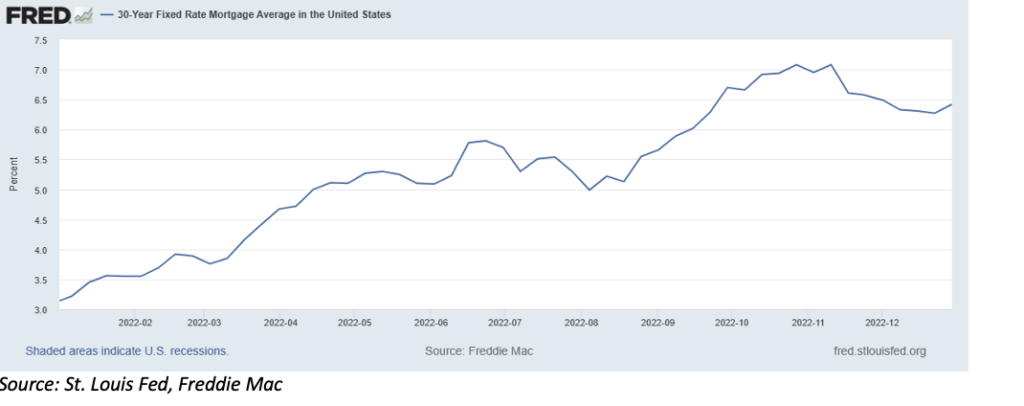
Key takeaways
- Mortgage rates are likely to be more favorable in the coming year.
- Many experts are still predicting substantially lower home sales activity, however.
- It’s possible they may be too pessimistic: There’s huge demand for reasonably priced homes.
“It’s hard to make predictions, especially about the future,” Yogi Berra once said. In fact, it may feel impossible to make big financial decisions when so many factors are constantly in flux, from interest rates to inflation.
With that in mind, we’ve rounded up several housing market forecasts to help you plan the coming year, whether you’re considering selling a home or buying one, or making use of the equity you already have built up.
In short, 2023 will feel like a deep sigh of relief after the frenzy of the past few years. And both buyers and sellers may be pleasantly surprised if they focus on the fundamentals and look past the headlines.
Mortgage rates will stabilize
Mortgage rates skyrocketed throughout the spring and summer of 2022 and then bounced unpredictably for the remainder of the year. Most experts believe the sharp movements in rates was one of the biggest contributors to the slide in housing activity last year.

Most experts also believe that the Federal Reserve will slow its pace of interest-rate hikes, which will help mortgage rates settle and then dip slightly. Economists at Fannie Mae, for example, expect the 30-year fixed-rate mortgage to fall steadily throughout the year, from 6.5% in the first quarter to 6% at the end of 2023. The National Association of Realtors forecasts a 5.7% rate by the fourth quarter.
Expect fewer home sales
For now, though, mortgage rates are still much higher than they’ve been in recent years, and home prices are too. Over the past year or so, many Americans found themselves priced out of the housing market, so they locked in rental leases or made upgrades to the homes they already own. They’re on the sidelines for now.
What’s more, some economists are predicting a recession, which may mean there won’t be as many people with jobs and cash for down payments in the housing market. As the experts at real estate brokerage Redfin put it, “People will only move if they need to.”
But many people will need to. Redfin forecasts 4.3 million home sales in 2023. The Mortgage Bankers Association, which anticipates a recession, expects 4.5 million homes to be sold. And those totals are only for existing homes, not newly built ones.
Upside risk?
While a recession may sound scary, and any job loss can be devastating to individual households, it’s important to keep the big picture in mind. The United States currently has a serious shortage of homes. One of the best estimates, from Freddie Mac, puts it at 3.8 million. That means some people aren’t just renting rather than buying. They’re living with a roommate when they’d rather have their own place or staying with in-laws.
As long as the economy doesn’t nosedive, there will still be people keeping an eye on the housing market to see what they can get. Homes that are in good condition and priced well will probably get snatched up quickly, not just by people who need to move, but by some who know a good bargain when they see it. Declining mortgage rates will only help that dynamic.
What does it mean for me?
If you’d like to sell your home, now might be an excellent time. “Substantial declines in mortgage rates,” note the experts at Zillow, “and promising data showing a decline in inflation, all give grounds for cautious optimism that the worst is behind us when it comes to borrowing costs, and some of the deterred homebuying demand from this fall may return in the new year.”
If you’re still too cautious to list your home, now might be the time to map out a 12-month plan. You may want to consult local real estate agents about the best way to get your home ready, and then take some of your accrued home equity and put it into upgrades that increase curb appeal.
The blog articles published by Unlock Technologies are available for general informational purposes only. They are not legal or financial advice, and should not be used as a substitute for legal or financial advice from a licensed attorney, tax, or financial professional. Unlock does not endorse and is not responsible for any content, links, privacy policy, or security policy of any linked third-party websites.”


